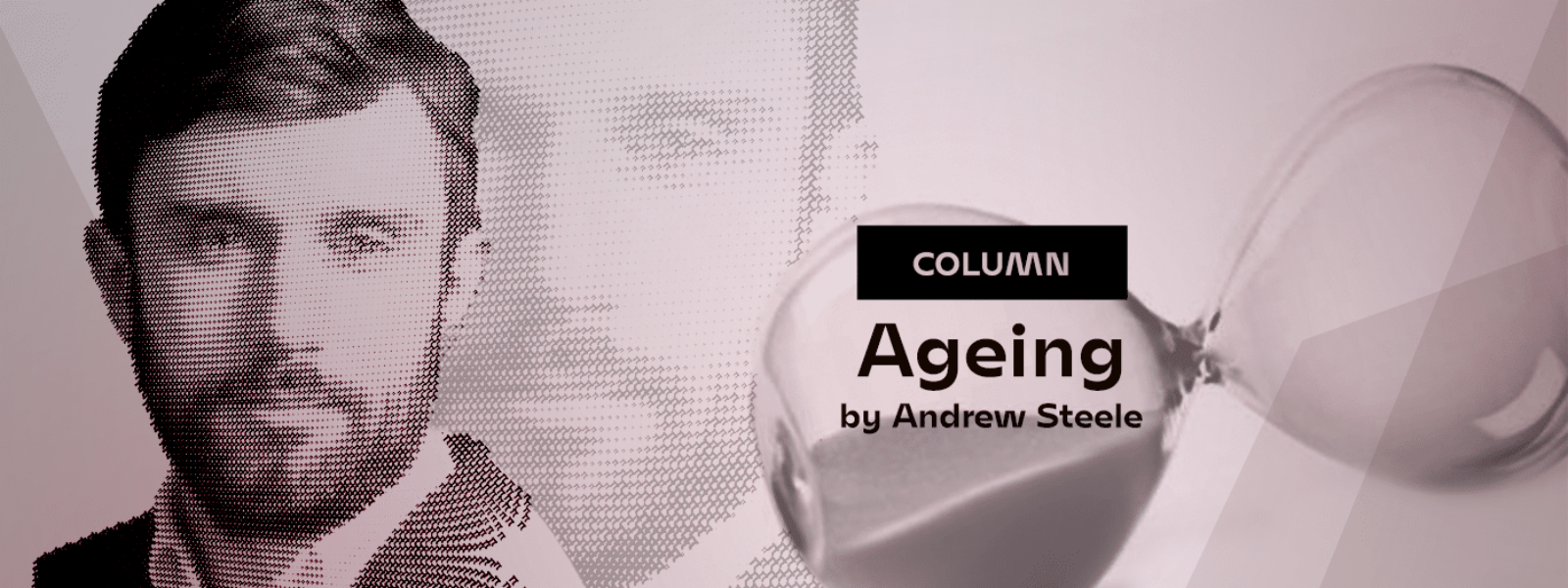Science says we could “cure” ageing. But should we?
- The possibility of designing treatments for ageing raises a number of ethical questions.
- Looking at demographic studies, eliminating old age as a potential cause of death, shows that the population would increase by about 16% by 2050, if old age is eradicated by 2025.
- In terms of access to treatment, affordability is more than feasible in the face of the colossal costs of old age on the global economy. A "cure" for ageing would mean billions saved.
- The ethical implications of new treatments should be discussed, including for real anti-ageing drugs.
Scientists studying the biology of why we age have made some incredible discoveries in the last few decades: the ageing process is not inevitable and, by understanding the molecular and cellular mechanisms that give rise to it they are developing treatments that could slow or even reverse the process. Can we learn enough that humans could live 400 years, like the Greenland shark? It’s a beguiling question, and one which is often followed equally swiftly by another: would we want to? The idea that we could treat ageing like any other medical condition raises some big ethical questions. Let’s examine a few of the most important.
What would we do with all the people?
The most common objection to treating ageing is often summed up with one word: ‘overpopulation’. The climate is already straining with our collective carbon dioxide emissions, and we’re also polluting the planet in a myriad of other ways, from farming and overfishing to microplastics and toxic waste. If people live longer, there will be more of us, and won’t that be even worse for the planet?
The first problem with this concern is the way it’s posed: ‘overpopulation’ implies that it’s people who are the problem, rather than the resources we use. It also unfairly demonises the parts of the world whose population is growing the most rapidly – precisely the poor countries whose populations use the fewest resources per head. But surely having more people nonetheless makes our various environmental challenges harder to solve, even if it’s not the people per se who are to blame?

The surprising fact is that even a complete cure for ageing — a hypothetical pill that would dramatically reduce the risk of cancer, heart disease, dementia and more — would have a fairly modest impact on global population. Taking the popular United Nations population projections and entirely removing ageing as a cause of death by 2025 (a slightly ridiculous scenario beyond even the most optimistic predictions for anti-ageing medicine) results in just a 16% increase in population by 20501. A far more feasible slower development and roll-out of such treatments would, of course, result in a smaller increase still.Then it becomes important to remember what’s on the other side of the balance sheet here: ageing is the cause of most cancer, most heart attacks and most dementia, as well as frailty, incontinence, hearing and sight loss, and much more besides. It is responsible for about two thirds of deaths globally2. I’d happily work 16% harder to cut my carbon footprint if it meant dramatically reduced death and suffering from dozens of causes, all around the world.
Viewed like this, population is certainly something to be aware of (and bodies like the UN would do well to pay this science a little more attention—none of their predictions explore life expectancies climbing significantly above 80 anywhere in the world), but it’s not the inevitable environmental catastrophe it sounds like it could be at first.
Would treatments only be available to the rich?
With Amazon founder Jeff Bezos being just the latest (and richest) billionaire to invest in anti-ageing research, there’s clearly interest from the ultra-rich in slowing the ageing process. But, if they succeed, are the rest of us going to be able to afford the treatments that result? The good news is, there are three important reasons to hope so.
Firstly, some of these treatments might be very cheap: early contenders for anti-ageing medicines like metformin and rapamycin are existing drugs whose patents have expired and cost pennies per pill3, and even more advanced therapies are likely to cost thousands rather than millions, due to automation and economies of scale when treatments are applicable to literally every human on the planet, not just the subset with a particular form of cancer, for example4.
Medicines would save governments and healthcare systems a huge amount of money, offsetting the cost of the treatments themselves.
Secondly, there will be a large economic imperative to provide even fairly expensive treatments, precisely because ageing itself is so expensive. Dementia—which is, of course, just one of many diseases of ageing—is estimated to cost over $1 trillion worldwide, rising to $2 trillion by 20305. Medicines that could alleviate the enormous burden of these diseases would save governments and healthcare systems a huge amount of money, offsetting the cost of the treatments themselves.
And finally, even if you think the billionaires are entirely out for themselves, hoarding the pills doesn’t even make sense from a selfish perspective. Imagine you’re Jeff Bezos: do you want to be the first person to take an experimental anti-ageing medicine, or the 100,000th, after extensive safety and efficacy testing? The best outcome for the billionaires is the same as for the rest of us: a thriving longevity industry, with treatments cheap enough for large-scale clinical trials, and therefore widespread usage.
But doesn’t death give life meaning?
As long as there have been humans, there has been death. There’s evidence that funeral rituals may date back hundreds of thousands of years6, so it’s likely our species has grappled with its finitude for at least tens of millennia. Is knowing it will end what motivates us to succeed, or provides meaning at all?
The first thing to say is that this is one of many objections that demonstrate how we put ageing research into its own ethical category—no-one would ask a cancer researcher whether they’re concerned that a reduction in death arising from their research might negatively affect the human condition, and yet, for ageing biologists, this is a common query.The second is that, even if we were to completely cure ageing, people would still die. There would still be buses to be hit by, infectious diseases to catch, and cancer, heart disease and more all afflict biologically young people too, if at a far lower rate than the elderly. However, a world where our biological youth was extended, perhaps indefinitely, would certainly be a world with less death—and I’m not so sure that would be a bad thing.

Much of the meaning in our lives comes from the people that fill it, our families and friends. And much of the pain, both emotional and physical, results from ill health, either theirs or our own. If we were all living longer lives in good health, as medicines against ageing promise, why wouldn’t we want to continue living? And as art, music, science, technology and more continue to advance (perhaps to new places only possible thanks to creators or researchers with extended careers, able to make discoveries only possible with extra decades of experience), it seems incredibly unlikely that we’d get bored.
And, even if we do tire of life itself aged 250, wouldn’t you rather go in a short, painless manner at a time of your own choosing, rather than having life slowly and painfully taken from you over decades by the ageing process?
The key point is that medicines for ageing are just that—medicine. They’re no stranger than a heart disease researcher trying to prolong healthy life by creating a drug to lower cholesterol. There’s no real evidence that the extra years bought by preventing heart attacks have stripped modern life of its meaning—so why would adding a few more years free from heart attacks and cancer and frailty do so?
And all drugs come with side-effects. For medicines with a large enough reach, these can be sociological, economic and ethical. The contraceptive pill transformed society, especially for women; antibiotics and vaccines haven’t just saved millions of lives, but fundamentally realigned our millennia-old relationship with infectious disease; the first truly safe and effective weight loss medications are already fomenting another social and medical revolution. We should discuss the ethical implications of all new treatments—but, though there will always be side-effects to contend with, I’d argue that the world would be a far better place with real anti-ageing medicines added to that list.
There’s obviously far more to say on the ethics of ageing biology, and you can find a free chapter of Andrew Steele’s book, Ageless, at ageless.link/ethics















